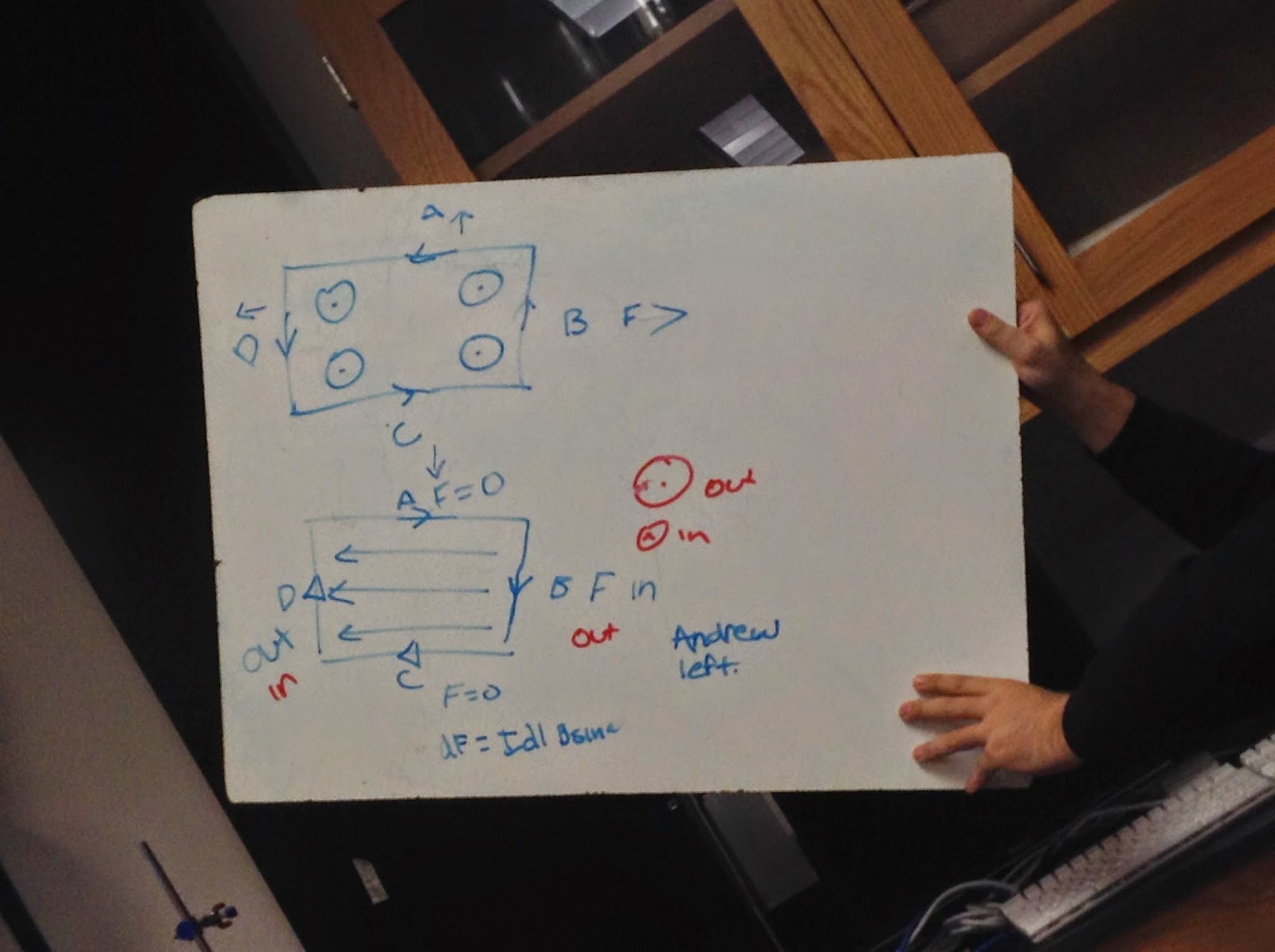Today we learned about motors and how they work.
The first motor we were given taught us how torque is =IAxB and how and then we expanded by saying that toque is also NIAxB. therefore we would have a larger torque by using more loops.
 |
| Here we have a DC motor being powered by a 3v battery at a steady current. with a magnetic field perpendicular to a to the current giving it a force to turn. |


































